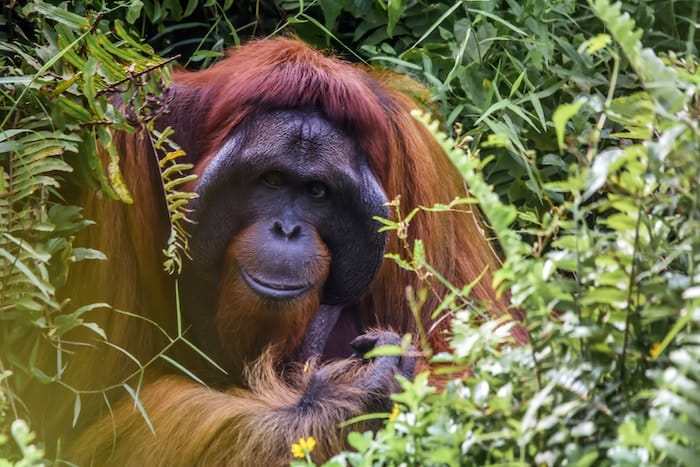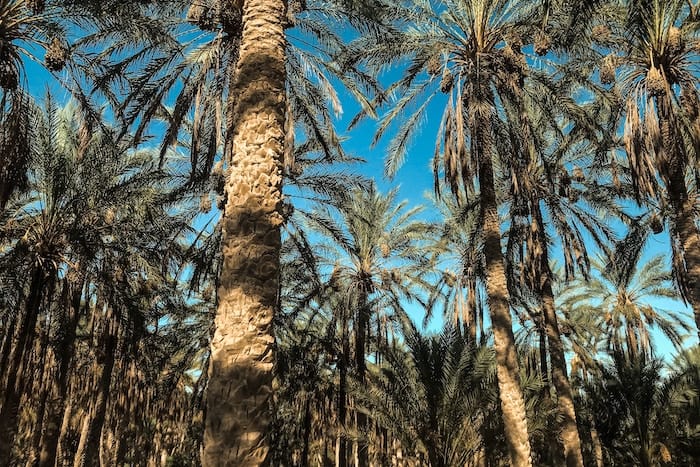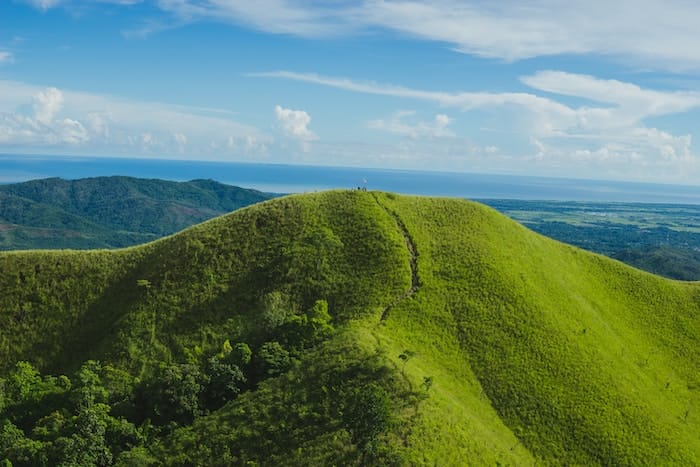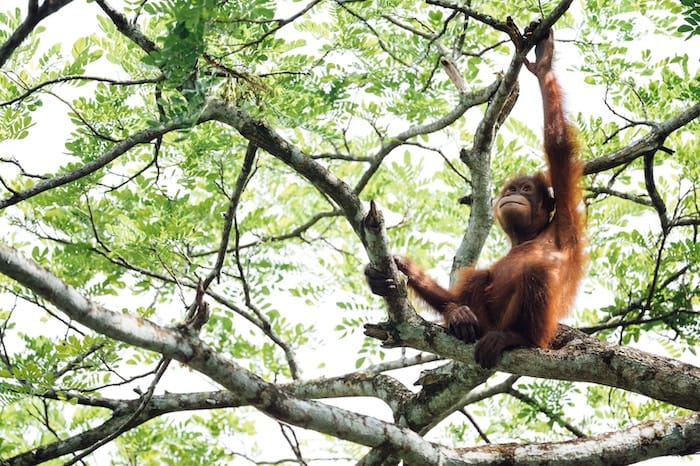Deforestation is one of the leading environmental issues that our planet is currently facing. The process of cutting down trees and destroying natural habitats has a direct impact on wildlife, including orangutans. The orangutan population is declining at an alarming rate due to deforestation, primarily in Southeast Asia. In this blog post, we will explore the reasons behind the rapid decline of orangutan populations and the negative effects of deforestation on these majestic creatures.

Orangutans are great apes that are native to the rainforests of Southeast Asia, primarily in Borneo and Sumatra. There are two species of orangutans: the Bornean orangutan and the Sumatran orangutan. Both species are critically endangered, with the Bornean orangutan population estimated to have declined by more than 60% over the past 50 years. The Sumatran orangutan population has declined by 80% over the past 75 years, and there are only an estimated 14,600 individuals left in the wild.
One of the primary reasons for the decline in orangutan populations is deforestation. Forests are being cleared at an alarming rate to make way for palm oil plantations, logging, mining, and agriculture. The demand for palm oil, in particular, has skyrocketed in recent years, and it is now the most widely used vegetable oil in the world. However, the expansion of palm oil plantations has resulted in the destruction of vast areas of rainforest, which is the natural habitat of orangutans.

Orangutans are highly dependent on the forest for their survival. They require large areas of forest to find food, shelter, and mates. When their natural habitat is destroyed, they are left with no choice but to venture out into open areas, where they are vulnerable to poachers and other threats. Deforestation also affects the availability of food for orangutans. They primarily eat fruit, and when the forest is destroyed, the fruit trees that they depend on are also destroyed. This leads to a decline in the availability of food, which can have a direct impact on their survival.
In addition to the direct impact on orangutans, deforestation also has indirect effects on their population. For example, when forests are cleared, the soil becomes exposed, which can lead to erosion and the loss of nutrients. This can result in reduced soil fertility, which affects the growth and productivity of the plants that orangutans rely on for food. The loss of forests also contributes to climate change, which can have a negative impact on the entire ecosystem. Climate change can lead to changes in weather patterns, which can affect the availability of food and water for orangutans.

Efforts are being made to protect orangutan populations and their natural habitats. One such effort is the creation of protected areas, where logging and other destructive activities are prohibited. The establishment of protected areas is critical to the survival of orangutans, as it provides them with a safe haven where they can live and thrive. The creation of protected areas also helps to prevent the loss of biodiversity, which is essential for maintaining a healthy ecosystem.
Another effort to protect orangutans is the promotion of sustainable palm oil production. Sustainable palm oil production involves the use of environmentally friendly practices that minimize the impact on forests and wildlife. It also promotes the use of alternative crops and the restoration of degraded land. Many companies are now committed to using sustainable palm oil, and some have even pledged to use 100% sustainable palm oil in their products.
Products with Palm Oil and Finding Sustainable Alternatives
Palm oil is an extremely versatile and widely-used ingredient in many everyday products, ranging from food items to cosmetics and cleaning products. The following is a list of some common everyday items that may contain palm oil:
- Food Products:
- Instant noodles (Maggi, Indomie)
- Chocolate (Nestle, Cadbury)
- Biscuits (Oreo, Chips Ahoy)
- Margarine (Flora, Blue Band)
- Ice cream (Walls, Ben & Jerry’s)
- Peanut butter (Skippy)
- Snack bars (Nature Valley, Clif Bars)
- Personal Care Products:
- Soap (Dove, Palmolive)
- Shampoo (Pantene, Head & Shoulders)
- Toothpaste (Colgate, Crest)
- Body lotion (Vaseline, Nivea)
- Lipstick (Maybelline, L’Oreal)
- Cleaning Products:
- Laundry detergent (Tide, Ariel)
- Dishwashing liquid (Palmolive, Sunlight)
- Floor cleaner (Mr. Clean, Pine-Sol)
It’s important to note that not all products containing palm oil are necessarily harmful to the environment or orangutan habitats. The key issue is the unsustainable production and sourcing of palm oil, which often involves deforestation and destruction of natural habitats.
Here are some alternative products that do not contain palm oil or use sustainable palm oil:
- Food Products:
- Look for food products with a sustainable palm oil certification, such as the RSPO (Roundtable on Sustainable Palm Oil) label.
- Choose products made with alternative oils such as sunflower, rapeseed, or coconut oil.
- Personal Care Products:
- Look for personal care products with a sustainable palm oil certification, such as the RSPO label or Green Palm label.
- Choose products made with alternative ingredients such as shea butter, cocoa butter, or coconut oil.
- Cleaning Products:
- Look for cleaning products with a sustainable palm oil certification, such as the RSPO label or Green Palm label.
- Choose products made with alternative ingredients such as coconut oil or vegetable-based surfactants.
By choosing products made with sustainable palm oil or alternative ingredients, we can help reduce the demand for unsustainable palm oil production and support more environmentally-friendly practices.
Due note however, there is some debate over the value of the RSPO certification so do your research before purchasing any goods.
Note: Palm oil goes by a lot of names on the back of product labels. Palm Oil Investigations has an extensive list

Groups That Help Orangutans
There are several organizations and causes that are dedicated to protecting orangutans and their natural habitats. In this post, we will explore some of these organizations and the work they do to help orangutans.
The Orangutan Foundation International was founded in 1986 by Dr. Birute Galdikas, a pioneering primatologist who has dedicated her life to studying orangutans. OFI is committed to protecting orangutans and their natural habitats in Borneo and Sumatra. The organization works to prevent deforestation, rescue and rehabilitate orangutans that have been orphaned or displaced, and educate local communities about the importance of conservation. OFI also runs a research and conservation center in Borneo, where visitors can learn about orangutans and their habitats.
The Borneo Orangutan Survival Foundation was founded in 1991 and is dedicated to the conservation of orangutans and their habitats in Borneo. The organization operates several orangutan rescue and rehabilitation centers in Borneo, where orphaned and displaced orangutans are cared for and prepared for release into the wild. BOSF also works to prevent deforestation, reintroduce orangutans into protected areas, and educate local communities about the importance of conservation.
The Sumatran Orangutan Society was founded in 1997 and is dedicated to protecting the critically endangered Sumatran orangutan and its rainforest habitat. The organization works to prevent deforestation, rescue and rehabilitate orangutans that have been orphaned or displaced, and support conservation efforts in protected areas. SOS also works to educate the public about the importance of conservation and sustainable living.
Rainforest Trust is a conservation organization that is committed to protecting endangered species and their habitats around the world. The organization works with local partners to purchase and protect land that is threatened by deforestation and other destructive activities. Rainforest Trust has supported several projects aimed at protecting orangutan populations and their habitats in Southeast Asia.
Website:
The Jane Goodall Institute was founded in 1977 by renowned primatologist Dr. Jane Goodall. The organization is committed to protecting wildlife and their habitats around the world, including orangutans in Southeast Asia. The Jane Goodall Institute works to prevent deforestation, promote sustainable land use practices, and support conservation efforts in protected areas. The organization also runs several programs aimed at educating the public about the importance of conservation.
Reviewed by: Tim Winter

Tim Winter has dedicated his writing and research efforts to animals and wildlife. He explores the globe and sees firsthand the negative impact humans have on the environment. Tim is dedicated to promoting responsible environmental stewardship. He holds a Bachelor of Science in Advertising from the University of Oregon School of Journalism and Communications.
